The list of of ‘don’t eat’ foods and foods free from x, y and z has reached phenomenal levels and shows no sign of slowing any time soon so what exactly is there left in the ‘can eat’ food basket?…
If you’ve found yourself more than a little confused lately about wtf healthy foods you actually have left to choose from then you’ve come to the right place because in today’s post we are going to clear up some of the common myths behind the claims to not eat this or that with the aim of tremendously expanding and liberating your dietary choices (and mind!) by the end. To set the scene, let us begin with exploring that old chestnut of basing our diets off what our ancestors ate.
What Did Our Ancestors Eat?
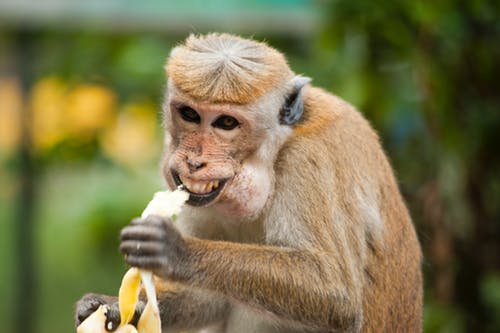
It is often argued that eating like our ancestors is the best diet for us and I understand this thinking, truly I get where it is coming from however, I also see that there’s far more to what may at first seem like a straightforward concept.
It is incredibly challenging to determine what our long extinct ancestors did indeed eat and if for a moment we were to assume we could know with any degree of certainty there is a big difference between eating out of necessity and eating for optimal health and it is unlikely our ancestors made their food choices based on living long and healthy lives.
While today many of us have the privilege of choice when it comes to what we put in our mouths this hasn’t always been the case. For the most part of our evolutionary history we ate out of necessity and we ate what was available and because what was available depended on many things outside of our control including the climate, geographical location, our ability to obtain, process, prepare and store foods it is highly likely there were many times our ancestors would have eaten poorly, been at risk of vitamin and other micronutrient deficiencies and food borne diseases. On top of this we have a vast and varied lineage of ancestors whose food availability and therefore choice was tremendously vast and varied not only from what is available today but also from location to location and across different evolutionary time periods.
Quickly Debunking the ‘Paleo’ Diet

The Palaeolithic or as it’s more commonly referred to as the paleo diet is a dietary eating pattern popularised a few years back by a number of celebrities and marketed as being a healthy diet because it was based on what our ancestors ate during the Palaeolithic period (between approximately 2.6 million and 10 000 years ago). At its simplest the paleo diet is any number of interpretations and variations of foods which were allowed (meats, eggs, nuts, ‘healthy’ fats and oils, fruits and vegetables) and foods which were not allowed (grains, legumes, sugar, ‘processed foods’ and dairy).
The theory behind the paleo diet being that this is a healthy model of eating because our bodies have had insufficient time to adapt to the recent changes in dietary practices that came about with the advent of agricultural practices and domestication of animals for food. Let’s get straight to the point, firstly, the paleo diet as advertised is quite simply not what our ancestors ate (some archaeologists outrightly say the paleo diet has NO basis in archaeological reality) and secondly, even if it was what our ancestors ate this does not mean it is by default ‘healthier’ for us to eat this way today.
Not only is the composition of our ancestral diet hotly debated the way I see it is even if we were to reach a consensus this really wouldn’t be the ideal diet for the modern human anyway. There is nothing intrinsically better or healthier about the lives our ancestors lived therefore we can learn from our past but to plan your menu entirely off this is somewhat silly as you don’t live there, your body is not the same as that of your ancestors of 10 000, 20 000 and certainly not 2.6 million years ago nor do you do the same things.
Therefore, rather than speculate about what our ancestors did and didn’t eat let’s look at 6 things we do know for certain and in doing so clear up common misconceptions so you can make your own informed choices when it comes to deciding what you want to eat or not eat instead of naively letting a shiny and compelling health claim made on a label or a YouTube video dictate this.
- Our Ancestors Were Not Picky

If there’s one, clear message from our evolutionary past it is that we weren’t choosy with what we ate. Ancestral you certainly wasn’t scrolling through Instagram to check what that guy on the other side of the world whose name you can’t remember had for breakfast last Sunday in order to help you decide what to put into your mouth today.
Our ancestors ate what was available to them at the time which has resulted in perhaps the most important yet often completely ignored truth when it comes to nutrition the fact that we’ve adapted for a variety of dietary intakes. Indeed, it is this very dietary adaptability and versatility rather than specialisation which allowed for our species to separate from the other hominins and thrive to the level we have. If we were dependent on one way in which we had to eat our lineage would likely have died out thousands if not millions of years ago.
2. All the Foods We Eat Today Are Products of Our Interference
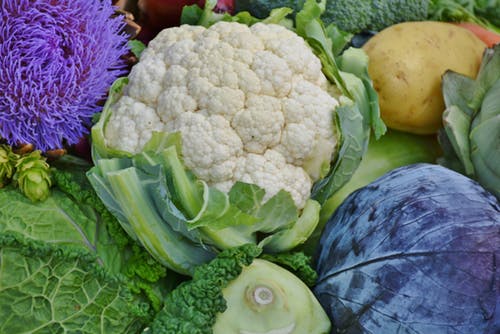
There was no option for a big, green leafy salad back in the Palaeolithic era (or celery juice while we’re at it). Even wild lettuce and carrots were tiny, bitter and full of latex and broccoli, cauliflower and brussel sprouts were non-existent yet, most of us would identify these foods as ‘healthy’ and ‘natural’ but we essentially invented them. They only exist today because of our dedication to years of selective breeding.
The same that is true for vegetables is true for the fruits, grains, legumes and animals we eat today, therefore the argument that we shouldn’t eat grains, legumes or fruits because we’ve bread them to be different from their natural state (Paleo diet claim) doesn’t hold up because if we were to do this we’d also have to apply this to vegetables and meat in which case we truly would have no options left.
Our food choices are different to the food choices our ancestors had available and instead of fighting, hating or blaming this for any and every health problem we encounter I say thank f*%# because above all else these differences are a blessing. Now, it’s just a matter of getting the right information, the right education and the right help to ensure what you are eating is indeed supporting your health and life goals; nothing more complicated than this.
3. We Evolved to Eat Wholefoods (not Multivitamins or Brown Rice Protein Powder)
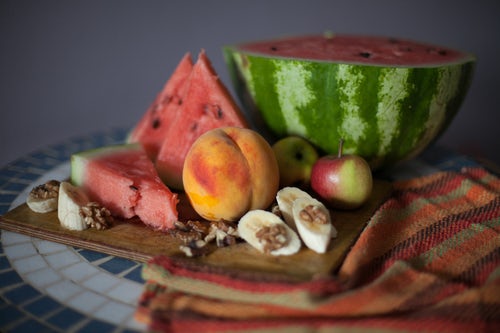
The more science-y we get the more we want to identify and isolate the miracle cure all substance. However, in reality it is the food in its entirety (wholefood) which provides the health benefits. Yes, we need the calories, the fibre, the vitamins and the minerals but it is the interaction of all these things and all the other compounds within foods some we know of and many I am sure we don’t which imparts the final health benefits.
We know that ‘mixed meals’ meals which contain a number of different foods processed very differently by our bodies than one food in isolation and we know that supplements or isolates of any vitamin, mineral or other are again treated very differently by our body than a wholefood that would have contained this vitamin, mineral or other as just one component amid thousands of others. For example, when we eat carbohydrates with a fat or protein source, they are digested much slower and raise our blood glucose and insulin levels much more gradually over a longer period of time and when we take vitamin E supplements in only one form this can interfere with the absorption of other forms of vitamin E.
4. Our Ancestors Ate Meat
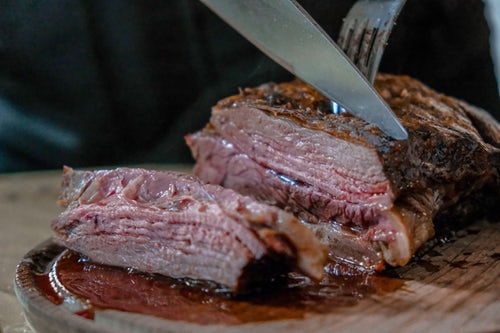
It’s postulated that we likely began scavenging off kills made by other animals more so than as fruit, vegetable or grain eaters, later we became hunters ourselves and tool marks on bones of large game animals leave little doubt that we ate meat millions of years ago, later fossil records show an increase in grain gathering and agricultural practices coinciding with a decrease in animal protein intake because our protein and energy needs could now be met with the more reliable, easier to obtain, process and store plant foods.
We also know of traditional cultures who eat diets comprised almost exclusively of animal products and live healthy lives including the Maasai and Inuit’s. Therefore, the arguments that we didn’t evolve to eat meat or that eating meat is inherently unhealthy don’t hold up.
What we don’t know is if our meat eating was what allowed for the tremendous growth of our brains as is often the claim (FYI we now have brains 5x the size of what is predicted for an animal our size!). There are theories and evidence that it was meat that allowed for our brain expansion but there are also theories and evidence that it was our increased intake of savannah grains and carbohydrate rich tubers, or our increased intake of sugar and vitamin rich forest fruits, or our increased intake of omega 3 rich seafood. In any case it’s not an open shut case that it was meat alone we can thank for our intelligence and I’d bet it was a combination of these things which further supports our ability to thrive best under a range of different and varied dietary intakes.
5. There’s Nothing Unnatural About Eating Carbohydrates or Gluten
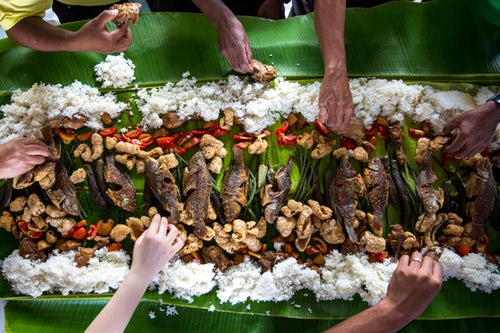
There’s evidence we were eating the early lineages of the grains we now know today as wheat, barley and rye 10 000 years before the advent of agriculture and even as far back as the Neanderthal days.
Both the Aztec and the Mayan cultures were highly dependent on carbohydrates (maize or corn) as dietary staples as was and still is much or Asia (rice) including populations which have been considered amongst the healthiest in the world in terms of having low rates of chronic illness and high incidence of longevity (The islands of Okinawa).
In any case your brain uses carbohydrates (broken down into glucose) as its preferred fuel source which if that’s not indicative that we were meant to eat carbs I don’t know what is, if you were to place any value or respect upon your intelligence that is.
So, next time you’re biting into that sweet cupcake give your body and mind a break from the blame, shame and fear that it’s going to bite you back (do you even quite know what it is you fear will happen?…) because believe me your body has evolved to be far more resilient than to meltdown over a little bit of sugar every now and then!
6. We’ve Been Eating Dairy Since Before We Were Writing
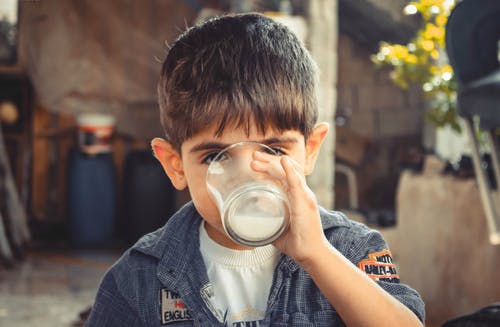
Clearly our dairy industry is not that of the Masai or our ancestors therefore the debate over whether or not eating dairy products is good or bad for us is now more a question of the health of the animals than our health because in many cultures and for many years animal products including meat, milk, cheese and yoghurt have provided a valuable source of nutrition as part of a healthful diet.
There is evidence of early milk use in ancient settlements from 7000-5000 years ago in Africa and as far back as 9000 years ago in Europe1,2 (this predates writing) and in both parts of the world different genome mutations arose and were selected for independently which allowed for the enzyme lactase to persist into adulthood so that both populations could continue to digest milk into adulthood.
Therefore, while in comparison to our entire evolutionary past drinking milk for 10 000 years may be but a speck of time this isn’t really grounds for claiming this (or any of these other ‘newer’ food behaviours) is bad because the past 20 000 years have marked an unprecedented acceleration in our evolutionary advancement driven by rapid changes in our environment, including the advent of agriculture, domestication of animals and new ways of living in large populations and we are, contrary to what fear based marketing for diets such as the paleo would have us believe, doing just fine in keeping up.
Take Home Messages

It is my intention that after reading this you have realised that your question ‘What Should I Eat?’ cannot be answered in a blog post because just as there never was a universal Palaeolithic diet, there is no modern day one size fits all diet. We can continue to research and gain insight into what is, in generalised terms, healthiest for us as a collective species, but it will only ever be generalised and there will always be variations and exceptions purely because the way in which our bodies process, react to and use the very same food is in part individual. Hence why there will never be an online ‘shred’, ‘bootcamp’ or other such mass dietary intervention which will foster your best health and wellbeing because nutrition advice to be of real benefit must be tailor made.
Make no mistake when it comes to health nutrition matters. Which is why instead of scrolling through Instagram for your nutrition and health answers (that aren’t there) I highly encourage you to take a moment to make perhaps the most meaningful investment in your future you will ever make and seek the great help you need today from a nutrition professional (aka a dietitian) and experience for yourself where the right nutrition information FOR YOU can get you because thanks to what your ancestors ate you have the benefits of being born with a huge ass brain and it would be a shame to let all that potential remain potential.
You live in a time of abundant and unprecedented health possibilities so let’s use that!
Ps. If you’re really not going to rush out and see a dietitian today and are after a great starting place for nutrition fundamentals or want to feel some results before you believe in the magic of just how much getting it right really can change your life have a read of my earlier post ‘What is Healthy Eating Anyway?’ because it’s the best (and easiest to apply for immediate results) nutrition information you’ll find on the world wide web today.
Pps. There’s a great Ted talk by Peter Ungar which covers human evolutionary history in which he points out the fact that an animals teeth structure (including our own and that of our ancestors) is indicative of what the animal is capable of eating not what it eats in everyday life and I’d recommend the listen if you’re interested in this area.
With my whole heart I hope you found this information useful and inspiring.
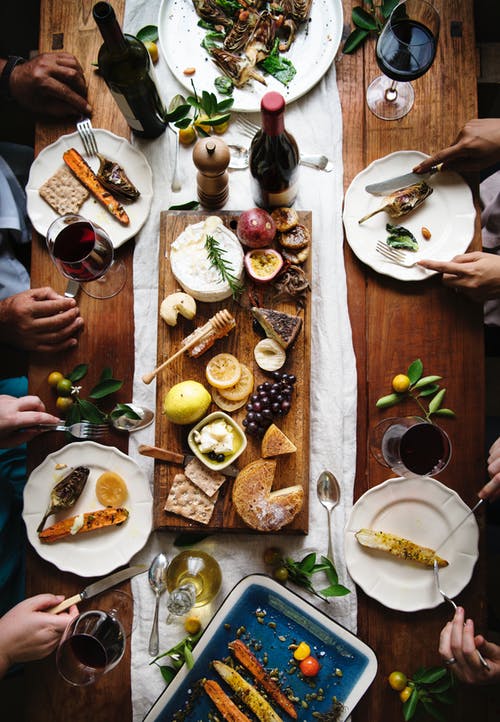
Become Great. Live Great.
Bonnie.
Reference
- Evershed RP, Payne S, Sherratt AG, Copley MS, Coolidge J, Urem-Kotsu D, Kotsakis K, Ozdoğan M, Ozdoğan AE, Nieuwenhuyse O, Akkermans PM, Bailey D, Andeescu RR, Campbell S, Farid S, Hodder I, Yalman N, Ozbaşaran M, Biçakci E, Garfinkel Y, Levy T, Burton MM. Earliest date for milkuse in the Near East and southeastern Europe linked to cattle herding. Nature. 2008 Sep 25;455(7212):528-31.
- Dunne J, Evershed RP, Salque M, Cramp L, Bruni S, Ryan K, Biagetti S, di Lernia S. First dairying in green Saharan Africa in the fifth millennium BC. Nature. 2012 Jun 20;486(7403):390-4.



